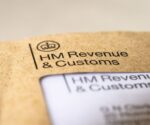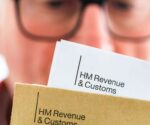Budget income tax freeze could cost workers £2,978 as Reeves eyes stealth rises | Personal Finance | Finance
A longer freeze on income tax thresholds could cost workers thousands of pounds, as the Government looks to raise revenue without changing headline tax rates. A new analysis shows someone on a salary of £44,000 could pay nearly £3,000 more over the coming years if the freeze is extended and thresholds are lowered.
It was previously rumoured that Chancellor Rachel Reeves was eyeing plans to raise income tax rates in her upcoming Autumn Budget, as one measure to fill an estimated £30billion hole in public finances. However, these plans have reportedly been dropped after the Office for Budget Responsibility (OBR) revised its economic forecast, reducing the estimated shortfall to £20billion. Instead, Ms Reeves is thought to be considering freezing – or even lowering – income tax thresholds, in a move that will drag more workers into higher tax brackets through a process known as fiscal drag.
Fiscal drag occurs when tax thresholds fail to rise in line with inflation, causing people to be pushed into higher tax bands even though their real incomes haven’t increased.
Thresholds have been fixed since April 2023 and are currently due to stay frozen until April 2028. However, there is speculation that the Chancellor could extend the freeze to 2030, a move reportedly expected to raise an additional £8.3 billion per year. By 2029/30, this would affect a total of 42.1 million income tax payers, an increase of 960,000 compared with the current plan.
Shaun Moore, tax and financial planning expert at Quilter, warned: “The idea of cutting income tax thresholds is essentially an attempt to pretend that the last few years of high inflation never happened. People have already been dragged into higher tax brackets simply because their wages have risen only to stand still in real terms.”
He added: “Lowering the thresholds now would compound that injustice. For many households, that combination will feel incredibly regressive and make them poorer in real terms despite on paper having higher salaries.”
According to Quilter’s calculations, for someone earning £44,000 today, extending the freeze until 2030 would raise their tax bill by £843 over the next four years.
Lowering the higher-rate threshold to £45,000 and freezing it pushes their total additional tax to £2,978, assuming the National Insurance upper earnings limit also falls in line.
A worker on £40,000 would pay an extra £321 under the freeze alone, rising to £1,010 if the threshold is cut and then held at that level.
Mr Moore said: “Income tax thresholds are meant to provide protection against fiscal drag, not used as a tool to raise ever more revenue.
“Freezing them for years has already brought record numbers of people into higher-rate tax. Actively cutting the thresholds would be a far more aggressive step and risks pulling millions more people into paying higher rate tax almost overnight. If the Government then extends the freeze into future years, it pours fuel on the fire.”
He added that although the political appeal is obvious, the approach undermines trust. Mr Moore said: “Ministers can say income tax rates are untouched while still raising many billions.
“But it is hard to square that with promises to protect ‘working people’. It is a blunt and opaque tool and risks eroding trust in the tax system at a time when the public expects clarity and honesty about the fiscal choices ahead.”
A recent Quilter survey of 267 customers shows public scepticism, with 48% saying they would prefer any future tax rises to come through explicit rate changes rather than stealth measures such as frozen thresholds.
Mr Moore added: “Reeves might think this move side steps more criticism, but it is likely to do the opposite. Instead, the idea of a ‘smorgasbord’ of tax changes introduces yet more complexity to a tax system already plagued with it.”









